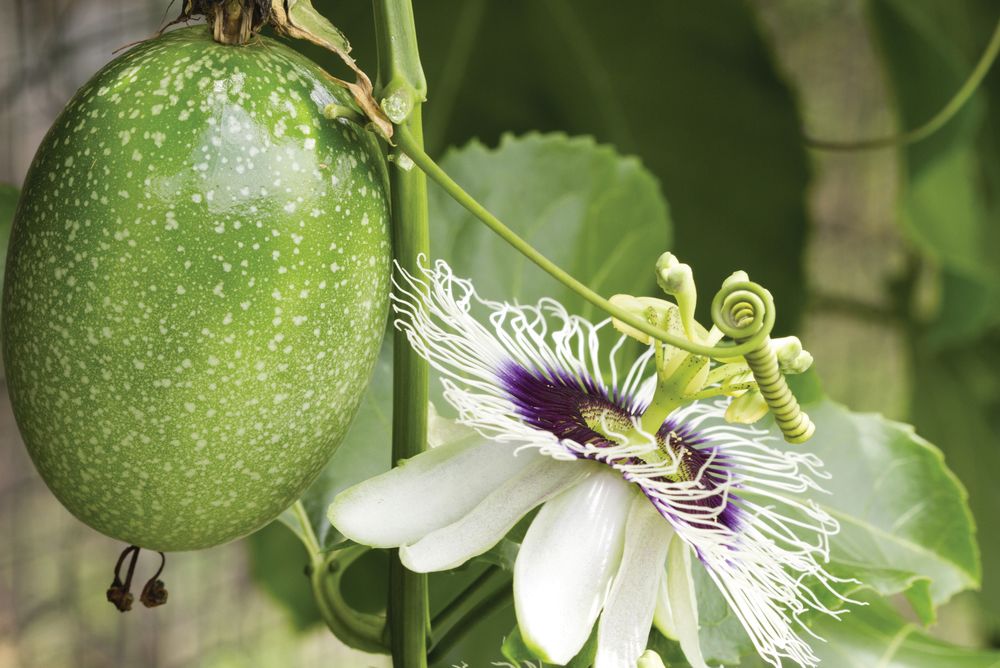Can You Eat Fruit a Squirrel Has Bitten?

Back in 1666, a young Englishman named Isaac Newton was obsessed with figuring out why the moon orbits the earth. He was sitting under an apple tree in his mother’s garden, when, the story goes, an apple hit him on the head. That’s not all that hit him. Newton was also struck by the realization that apples fall straight to the ground—and voilà!—the theory of gravity.
I’m no Newton. But a similar experience just sent me on my own scientific quest. True, the circumstances were less contemplative than the young scholar’s reverie in the garden. I was standing under our mango tree, screaming up at a squirrel clutching a golden-ripe mango, and flailing at him with a rake. He chattered right back at me, took a big, leisurely bite—and hurled the mango straight at my head.
I dodged just in time and was carrying the mango to the garbage—my partner George has a rule we can’t eat fruit a squirrel has bitten—when something stirred deep inside. Call it science or call it defiance. Whatever—I suddenly thought, “I don’t care what George says. This mango looks delicious and there is no good reason not to eat it.” And that’s exactly what I did.
George and I see eye-to-eye on many things, from politics to gardening. When we moved in together 20 years ago, we filled our tiny yard with herbs, vegetable beds and tropical trees. Today that’s called “edible landscaping” and is all the rage with urban dwellers concerned about sustainability and pesticides.
Our motives weren’t so lofty. We just loved being able to walk outside and pick tomatoes and clip some basil for dinner. But once our fruit trees matured and legions of squirrels staked out our yard, conflicts arose. A CPA who keeps his side of the bathroom vanity in shipshape order and throws cartons out of the refrigerator before their expiration date, George was convinced we’d get rabies—or worse—if we ate anything a squirrel had touched.
He was furious when I rebelled, even after I searched the internet and found plenty of home gardeners agreed with me. “Those are just crazies like you,” he scoffed. “What do they know about science?”
So in the noble pursuit of truth—and proving my partner totally wrong—I tracked down one of the country’s foremost squirrel experts, John L. Koprowski, professor emeritus of wildlife conservation at the University of Arizona.
I started off with a softball question. Why do squirrels have that maddening habit of taking just one bite? Ah, Koprowski replied—you have to look at it from the tree’s perspective. “Trees use squirrels to disperse their seeds,” he explained, and they want them to disperse mature seeds, not young ones that will never grow into a new tree. So unripe fruits contain bad-tasting chemicals that discourage the squirrel from feeding. Those chemicals disappear as the fruit ripens, meaning ripe fruit is more likely to be carried away and devoured. “It’s an amazing system,” he said, another example of the beautiful, complex interplay and harmony of nature.
Yes, yes, I interrupted, but I have a more important scientific question: “Is my boyfriend right that you shouldn’t eat fruit a squirrel has bitten?” He seemed taken aback. “That’s a little outside my bailiwick,” he finally replied. “But no—there are no known cases of diseases being passed indirectly from squirrels in that way.” Indeed, he added, squirrels rarely, if ever, have rabies. And even if they did, they would have to bite you to transmit anything. In some other regions, he continued, warming to the subject, squirrels do carry plague, which is transmitted by fleas—but certainly not by fruit.
If it were him, he concluded, he’d cut out any bitten part and thoroughly wash the fruit, since open spots are entryways for bacteria. And perhaps, he suggested gently, I should think about sharing. Basically, “a squirrel’s life is looking for food,” he said. Urban squirrels need fruit from our yards to survive. “They can have some and you can have some,” he said. “You take the nice ones, carve out the little dents where they’ve nibbled, and leave the ugly ones for them.”



